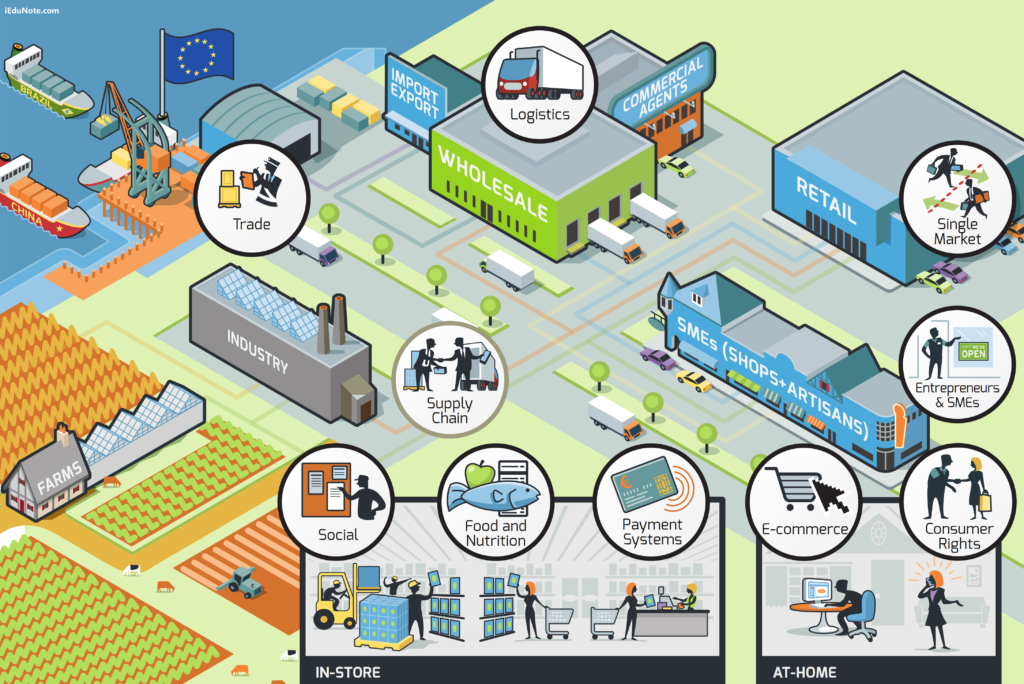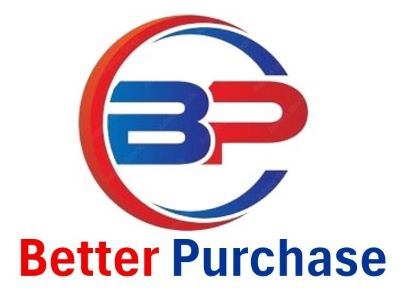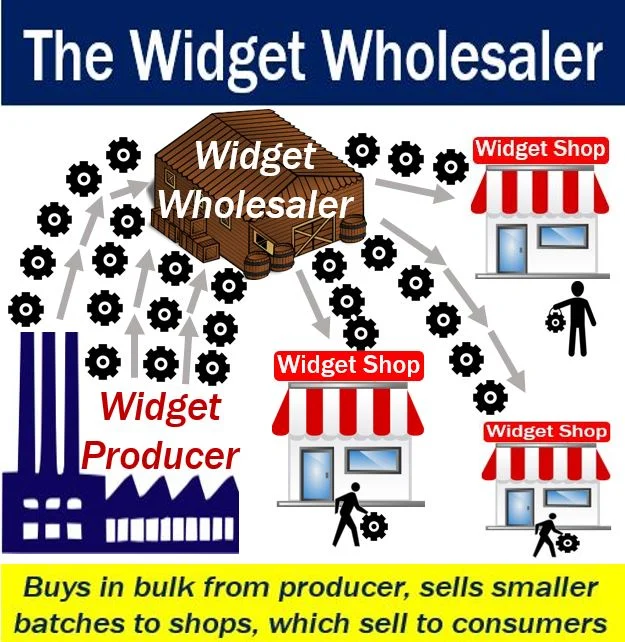What is a wholesaler? Definition and meaning – A Wholesaler is a company or individual that purchases great quantities of items from producers, farmers, other producers, and vendors. Wholesalers keep them in warehouses and provide them onto retailers (shops and supermarkets) and businesses.
By controlling supply and providing storage solutions, wholesalers alleviate the need for retailers to steadfastly keep up large storage places, which can be cost-prohibitive.
The merchant middlemen
Wholesalers are the business middlemen who provide mainly to retailers, other merchants, and industrial, industrial, or institutional users. They buy principally for resale or business use.
The wholesaler’s business model is founded on being the intermediary – the go-between. They perform between a product’s maker and other companies that want to market that product.
According to Collins.Dictionary.com, a wholesaler is:
“A wholesaler is a individual whose business is buying large quantities of goods and offering them in smaller quantities, as an example to shops.”
Wholesalers concentrate on B2B rather than B2C. B2B stands for business-to-business, i.e., one company offering to some other company. B2C stands for business-to-consumer. Retailers, as an example, concentrate on B2C.
Wholesaler vs. distributor
We call a wholesaler who holds only non-competing lines or items a supplier.Distributors usually accomplish similar jobs to wholesalers. Nevertheless, distributors tend to provide more complicated services.
Unlike formal distributors of a product, most wholesalers don’t offer large levels of product support. While distributors are supported right by the maker, typically the wholesalers are not.
While wholesalers may provide competitive items concurrently – such as rival brands of toothpaste – distributors do not.
Wholesalers don’t provide to individual consumers. If you – an individual consumer – need to get something for private use, you cannot buy it from a wholesaler You have to go to a retailer.

Etymology of ‘wholesale’
The Online Etymology Book says that the adjective ‘Wholesale’ days back once again to 15th-century Britain, with the meaning ‘in large quantities.’ It originated in the adjective ‘Whole’ plus ‘Sale.’
Etymology is the research of the source of words and how their forms and definitions have evolved.
Wholesaler buys in bulk
Wholesalers buy goods in volume, i.e., large quantities. On average, they reassemble, kind, repackage, or deliver the products in smaller units.
Because they purchase goods in significantly better quantities than we do in the stores, they pay a reduced unit price.
The wholesaler needs to buy more effortlessly from producers than it offers onto retailers because it needs to make a profit to endure as a business.
The difference between how much someone taken care of something in comparison to how much they sold it for is the margin.We call the upsurge in price the markup.
While wholesalers usually perform from separate premises, wholesale marketing of some goods happens at specific markets.
As an example, foodstuffs are commonly sold in wholesale markets where several traders congregate.
Why use a wholesaler?
Imagine you have your small business that offers mobile phone covers/protectors. On average, you provide 500 covers each month.
You discover a cellular phone protect maker that will provide all the items you intend to market at $9 each. Nevertheless, people are perhaps not willing to pay a lot more than $11 for each one, which gives you a tiny $2 profit on each sale.
If you intend to make a lot more than $1,000 each month, you will need to both provide in bigger numbers or find a somewhat cheaper supplier.
A telephone protect wholesaler , however, who purchases 100,000 phone covers monthly from the manufacturer, gets them at a reduced price – $2.50 each.
That wholesaler is willing to market you 500 phone covers regular at $4.50 each. Now, your profit (margin) – in the event that you provide them for $11 – is $6.50 per cover.
That is clearly a major improve from your prior profit per protect of just $2. Because of the wholesaler , your regular profit has jumped from $1,000 to $3,250.
In addition to price savings, wholesalers can also provide retailers flexible payment phrases, that may simplicity income flow for companies looking to control their finances more effectively.
“Wholesaler,” a derivative of “wholesale”
There are lots of derivatives of the words “wholesale.” Let’s have a review of some of them, their connotations, and how we could utilize them in a phrase:
- Wholesale (adjective)
Concerning the offering of goods in large amounts at reduced rates to be retailed by others.
Example: “The wholesale value of grain is usually somewhat less than the retail price.”
- Wholesaler (noun)
A person or business that offers goods in large amounts at reduced rates, an average of to retailers.
Example: “The wholesaler stocked many different products and services, from technology to clothing.”
- Wholesaling (noun)
What or operations of offering goods in large amounts at reduced rates
Example: “Wholesaling needs a proper approach to logistics and catalog management.”
- Wholesaled (verb, past tense)
Sold something in large amounts at reduced prices.
Example: “The business wholesaled their surplus stock at the end of the season.”
- Wholesomely (adverb)
In a fashion indicating wholesomeness or in large, total portions. Maybe not right related to ‘wholesale’in the industry sense, but a grammatical derivative.
Example: “The grandmother wholesomely organized a feast for the whole family.”
- Wholesomeness (noun)
The caliber of being wholesomely helpful; healthful or fairly good. This is more of a derivative of ‘whole’than ‘wholesale’but involved for its linguistic relation.
Example: “The wholesomeness of the new farm make was apparent in their style and quality.”











